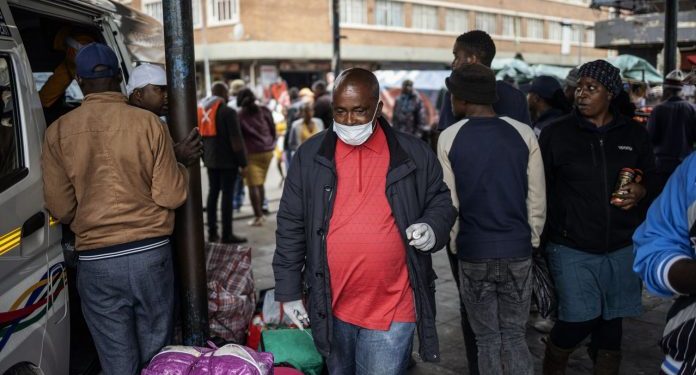The number of recorded COVID-19 cases in Africa, stands at just over 21,000 as at April 19th, with 1,080 reported deaths. This number is still relatively small, but it is growing fast and many experts are warning for African countries to prepare for a much larger number.
The United Nations Economic Commission for Africa recently raised fears that anywhere between 300,000 and 3.3 million people could lose their lives as a direct result of COVID-19, depending on the intervention measures taken to stop the spread. This is attributed to the fact that the continent has far fewer doctors, hospital beds, and ventilators per capita than any other region in the world and the outbreak could, in essence, break an already strained or in some cases non-existent health sector.
But even as governments, the private sector and NGOs offer solutions to curb the health crisis of the virus, our attention is drawn to the looming economic dangers posed by the pandemic.
In their latest report, McKinsey estimates that the jobs or incomes of some 150 million Africans, across both the formal and informal sectors, are vulnerable in the crisis. This is equivalent of a third of the total jobs across the continent which is about 440 million. Currently, it is estimated that the informal sector accounts for 300 million jobs while the formal employed sector accounts for about 140 million jobs.

Some of the most vulnerable sectors like manufacturing, retail and wholesale, tourism, and construction could potentially see more than half the workforce affected. This includes casual craft, trade and plant-operating jobs in the manufacturing and construction sectors. However, since most of Africa’s informal sector workforce are involved in subsistence agriculture, they won’t be very affected.
In Kenya, the hospitality and floriculture industries have felt the impact of the virus fastest with several hotels shutting down or retrenching staff. Meanwhile, it’s been reported that close to 30,000 flower farmworkers have been impacted since the pandemic has slowed down flower exports.
Another major blow from the pandemic will be the ripple effect it will have on sectors or businesses that were already struggling. For instance, state-owned South African Airline, is facing imminent bankruptcy after the government decided not to bail it out. The airline is reported to have offered severance packages to all 4,700 staff as it plans to fire all the staff.
Some industries, like print media which have been in steady decline, might see an accelerated decline leading to further job losses.
Perhaps of greater importance is the governments response to help avert this crisis.
McKinsey, opines that major additional stimulus may be required to mitigate damage to economies and livelihoods. African countries have so far announced stimulus packages of 1 to 1.5 percent of GDP, but this won’t be enough, according to McKinsey. African countries could still be left with a gap of five percentage points of GDP growth to return to precrisis levels and one to two percentage points to avoid an economic contraction given that the COVID-19 crisis could contract their GDP by between three and eight percentage points.
So just how should the stimulus packages look like and what should they prioritise?
The packages should typically have these three objectives in mind:
- ensuring basic incomes and availability of essential products and services to individuals and households in need;
- safeguarding small and medium-size enterprises (SMEs) and the jobs of the people who work for them
- supporting key corporate institutions that are necessary for the health of the economy.
Supporting individuals and households by ensuring some form of basic income is key to. ensure that the most vulnerable citizens are able to have a way of life. This might be in form of cash transfer programmes as has been seen in Togo or Kenya (planned).
Safe guarding SMEs is very important in ensuring that people still have jobs to go to. McKinsey suggests two ways to support SMEs (1) Ensure the survival of SMEs that provide essential goods and services, such as pharmacies and traders and (2) Ensure that jobs are retained through SMEs by designing SME support funds.
Finally, supporting key corporate institution so that these institutions can survive the crisis. These institutions may vary from national airlines to horticulture companies.
You can read the full McKinsey report here.
Related:
G20 Suspends Debt Repayment for World’s Poorest Countries
Let Them Eat Cake! On Lockdowns and Dilemmas in Emerging Markets
African Govts Step Up the Fight against COVID-19



